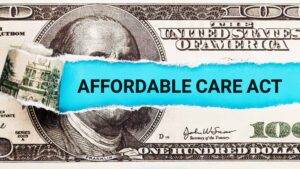
A few missed payments on a 401(k) loan, even though the delinquency was the employer’s mistake, didn’t stop the IRS from collecting tax and penalty on a deemed distribution. This is “borrower beware” tax law.
Missed Payments on 401(k) Loan Result in Deemed Distribution (Louelia Salomon Frias and Mervyngil Salomon v. Comm., TCM 2017-139)
Louelia Frias borrowed $40,000 from her 401(k) plan when she went on maternity leave. The loan agreement required biweekly payroll deductions to start on the first billing statement beginning after August 10, 2012. In the event that a payment was missed, the loan agreement allowed Mrs. Frias to pay the delinquent amounts up to the last day of the calendar month following the calendar month that the delinquent payment was due (cure period). If Mrs. Frias became delinquent and did not pay the delinquent amounts within the cure period, then under the loan agreement, the entire loan amount would be in default and considered a distribution and the401(k) plan administrator would be required to report the outstanding amount of the loan as a distribution to her.
Employer failed to withhold loan payments from her paycheck. Mrs. Frias’ first loan payment was due Aug. 24, 2012. However, her employer failed to deduct and to remit the loan payments from the amounts paid to Mrs. Frias. Mrs. Frias did not know that her employer had failed to withhold loan payments from her paycheck until she was told by her employer upon her return from maternity leave. Mrs. Frias, who returned to work on October 12, 2012, did not make her first payment until November 20, 2012.
Taxpayer made extra payments and paid off the loan on time. When Mrs. Frias learned of her employer’s failure, she immediately made a $1,000 payment. Mrs. Frias then instructed her employer to withhold and remit loan payments in the increased amount of $500 each through July 15, 2013. Although Mrs. Frias continued to make payments of the original loan payment amounts until the loan had been repaid in full on July 9, 2014, the plan administrator issued Mrs. Frias a 2012 Form 1099-R for the full amount of the loan. Mrs. Frias did not report the Form 1099-R on her 2012 tax return.
Loan rules must be met. Section 72(p)(1)(A) provides that any amount taken as a loan from a qualified employer plan will generally be treated as a distribution to the participant. Under §72(p)(2), however, a loan will not be treated as a distribution if the loan (1) is manifested in a legally enforceable agreement, (2) does not exceed the lesser of the amounts set forth in §72(p)(2)(A)(i) or (ii), (3) by its terms is to be repaid within five years, and (4) has substantially level amortization over the term of the loan with payments made at least quarterly (substantially level amortization requirement) §1.72(p)-1, Q&A-3. A deemed distribution occurs at the first time that the requirements of this section are not satisfied.
One missed loan payment can result in a deemed distribution. Because Mrs. Frias failed to make her initial loan payment by the due date and failed to make the delinquent payment before the cure period expired, she defaulted under the loan agreement. As a result, the outstanding balance of the loan as well as any accrued interest became a deemed distribution in 2012 that was taxable to her.
- Tax planning idea. As you can see from this case, the rules are strict. The employer’s failure to withhold payments per the loan agreement made no difference. Catching up delinquent payments didn’t matter. The court didn’t care that it was only one or two late payments or that there was a new baby in the house. Excuses didn’t help. The taxpayer owed $19,129 in tax and penalties on the deemed distribution.
©2017 Sharon Kreider and Vern Hoven
Recent Stories


Trump Accounts and New Form 4547


The ACA Enhanced Subsidy Expires





